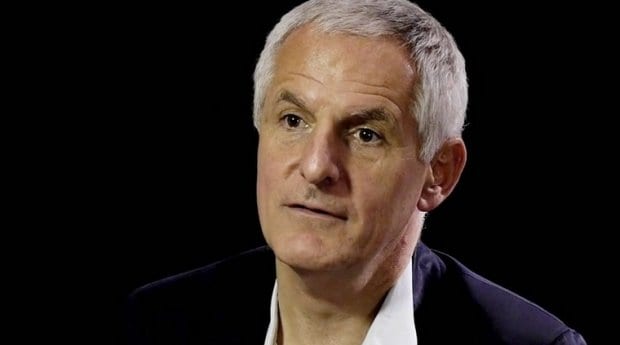“The mood is subdued; everybody is devastated by the tragic outcome of this crash,” says Irene Day, director of operations at the BC Centre for Excellence in HIV/AIDS.
Day is currently in Melbourne, Australia, for the International AIDS Conference. She and other attendees are reeling from the loss of several colleagues in research and activism who were on the downed Malaysian Airlines Flight 17, which has claimed the lives of nearly 300 people.
Among those who died are top AIDS researcher and activist Joep Lange of the Netherlands, a former president of the International AIDS Society (IAS), and his partner, Jacqueline van Tongeren; Glenn Thomas, of the World Health Organization; Pim de Kuijer, a 32-year-old lobbyist for Stop AIDS Now; and Aids Fonds member Martine de Schutter. A comprehensive passenger list has not yet been released.
“Joep was a great source of inspiration for everyone who aimed to contribute to solving the AIDS tragedy in Africa and Asia,” reads a statement from the University of Amsterdam, where Lange headed the Department of Global Health. “He was shocked to see how, from 1996 onwards, expensive HIV therapies became available to patients in rich countries, but not in Africa, and he made it his mission to change this and to put an end to the gross inequality in access to life-saving medication,” it adds.
The Wall Street Journal notes that Lange was scheduled to lead a July 20 panel entitled “A Frank Dialogue on the Future of HIV Treatment: All the Way from the Factory to the Patient,” examining strategies to expand use of antiretroviral treatments in poor countries.
“The whole concept of what that crash represents, I think it can’t help but not have an impact on the conference,” Day tells Xtra, but she says the IAS, which is organizing the summit, plans to proceed as scheduled.
“The International AIDS Society today expresses its sincere sadness at receiving news that a number of colleagues and friends en route to attend the 20th International AIDS Conference taking place in Melbourne, Australia, were on board the Malaysian Airlines MH17 flight that has crashed over Ukraine. At this incredibly sad and sensitive time the IAS stands with our international family and sends condolences to the loved ones of those who have been lost to this tragedy,” a statement from the IAS reads. “In recognition of our colleagues’ dedication to the fight against HIV/AIDS, the conference will go ahead as planned and will include opportunities to reflect and remember those we have lost.”
“I am confident that individuals like Joep would want that, because he was completely and totally committed to reaching out and engaging individuals in care and treatment,” Day says. She says the BC Centre for Excellence in HIV/AIDS is “particularly saddened” by the loss of Lange, a close friend and colleague of the centre’s director, Dr Julio Montaner, who is en route to the conference.
Day notes that Lange was a co-investigator on work introducing triple-drug therapy in 1996, a process led by Montaner.
“Any time we lose people of that calibre, and any time in that number, it is significant, particularly in the way it happened,” says John Bishop, chair of Positive Living BC. “People have dedicated their lives to understanding this disease and helping those of us who live with this disease; it’s why we do what we do and why we stand beside warriors like this.”
Bishop agrees with the decision to let the conference go on, echoing Day’s and conference organizers’ belief that those who have died would want it to continue.
He says what galls him the most was the decision to fly a route that was not safe. “I find that just really odd.”
In a July 18 statement to reporters, American President Barack Obama drew attention to the loss of researchers and advocates heading to the Melbourne conference. “In this world today, we shouldn’t forget that in the midst of conflict and killing, there are people like these, people who are focused on what can be built rather than what can be destroyed, people who are focused on how they can help people that they’ve never met, people that define themselves not by what makes them different from other people, but by the humanity that we hold in common. It’s important for us to lift them up and to affirm their lives.”


 Why you can trust Xtra
Why you can trust Xtra


